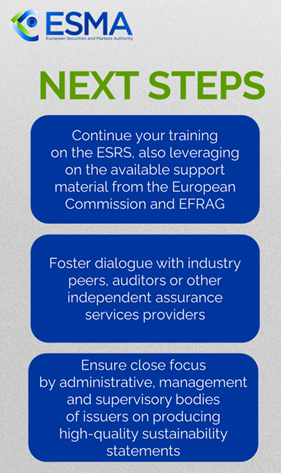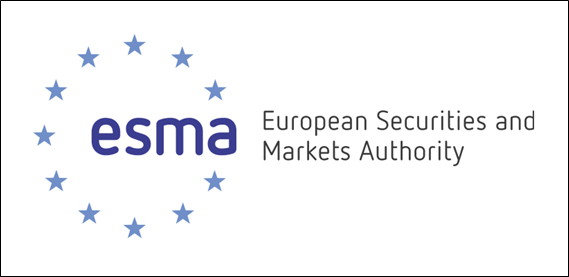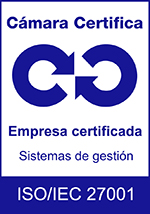The European Securities and Markets Authority (ESMA) has launched key guidelines and a public statement to support companies in adopting the European Sustainability Reporting Standards (ESRS). This effort is part of the implementation of the Corporate Sustainability Reporting Directive (CSRD), a regulation that updates and extends the requirements of the previous Non-Financial Reporting Directive (NFRD).
The CSRD, which came into force at the beginning of 2024, represents a significant change in EU sustainability regulation, increasing the number of companies obliged to report sustainability information from 12,000 to more than 50,000. The directive requires detailed reporting on environmental impacts, human rights, social standards and sustainability-related risks, initially applying to large public interest companies with more than 500 employees and extending to smaller companies and listed SMEs in the following years.
In its recent public statement, ESMA highlights the importance for companies to establish robust data collection and management systems to comply with the new sustainability standards. The authority recognises the challenges faced by companies in the first implementation of ESRS, especially in terms of data availability and quality. ESMA encourages companies to develop or strengthen their sustainability data infrastructure and to conduct comprehensive materiality assessments to comply with the dual materiality requirements of the CSRD.
This “dual materiality” approach requires companies to report both on the risks and impact of sustainability issues on the company and on the company’s impacts on the environment and society. ESMA stresses the need for companies to reconsider their materiality processes to align with these new requirements and to provide full transparency on these processes.
The ESMA report also emphasises the preparation of sustainability reports that are digitisation-ready and that effectively integrate financial and sustainability information. The authority stresses that companies should establish appropriate governance arrangements and internal controls, and ensure connectivity between financial and sustainability information, including reporting the connections within the sustainability statement as part of the disclosure of information on current and expected financial impacts.
In addition, the CSRD includes a transitional relief for the first three years for companies that cannot obtain complete information on their initial value chains. However, ESMA recalls that the lack of data does not justify the omission of relevant information, and encourages companies to conduct gap assessments to enable continuous improvement in the quality of reporting.
ESMA recalls in its report “Off to a good start” the following steps for issuers:

Source: ESMA. Primera aplicación del ESRS por grandes emisores.
In line with its objective to promote European capital markets as leaders in green finance, ESMA has also presented its Final Report on Guidelines on the Application of Sustainability Information (GLESI). This report seeks to harmonise supervisory practices in the EU, encouraging a unified approach among national authorities to improve the clarity and comparability of sustainability information for investors.
ESMA is committed to continuously monitor sustainability reporting practices and to facilitate a smoother adoption process for companies. In the coming months, ESMA will publish additional recommendations on sustainability disclosures by listed companies and will continue to monitor the implementation of the GLESI guidelines, with translations available in all EU languages.
In this exciting journey towards sustainability, Laragon, as a committed partner for a sustainable future, continues to lead the way towards a more responsible and conscious business world through all our solutions.



